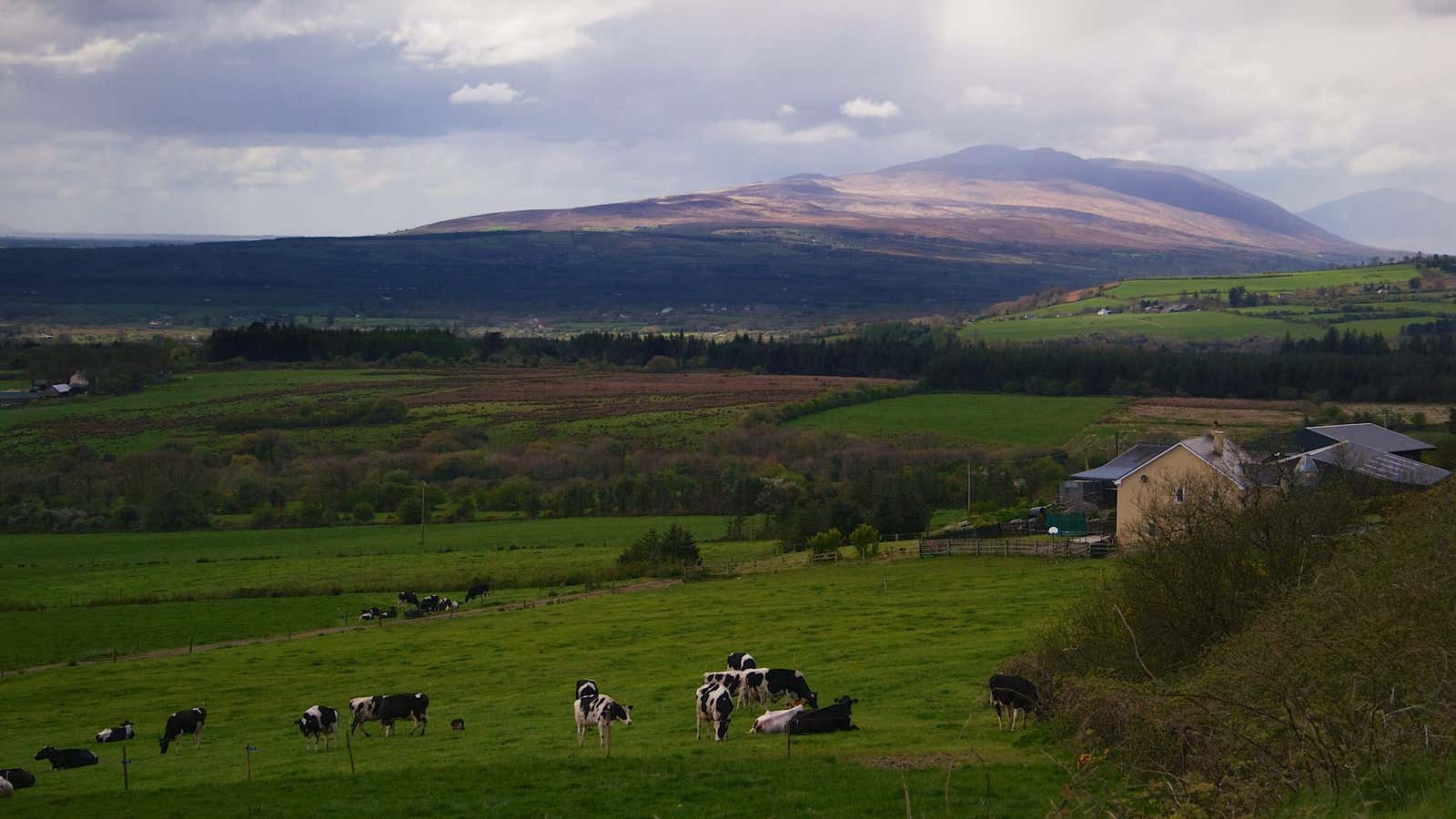Politicians in Ireland plan to make fast, affordable broadband a legal right for every citizen.
The country’s new communications minister Denis Naughten said on Wednesday (June 1) the government will ensure fast internet is enshrined in the country’s Universal Service Obligation (USO). Naughten compared fast broadband to electricity. “We want to ensure people have access to broadband as a right,” said Naughten in Silicon Republic. “I want it as an enforceable right.”
The EU country, which has traditionally lagged in national connectivity, is finalizing a €275m ($312 million) National Broadband Plan that will accelerate broadband universal access to its 4.6 million citizens by 2022. The move would add the 30Mbps baseline service standard to Ireland’s 40-year-old USO which currently mandates copper telephone connections. In rural areas, 20% of the population lack such access. The plan is scheduled to break ground in 2017.
Rolling out the necessary infrastructure for high-speed internet parallels the rural electrification effort of the 1930s and 1940s. New cables and fiber optics must be strung on poles, or laid down in ditches, and to get last mile access to homes, new telecommunications equipment must be hooked up. Those projects are complicated by a patchwork of local authorities and legal requirements that give regulators headaches. Once the rural network is complete, the government said it would formalize high-speed broadband as a formal right.
That’s more than what other European nations promise. Many EU countries (pdf) have a “functional” standard of only 1- 2 megabytes per second (MBps). The EU also does not guarantee fast internet for all citizens. It did achieve universal broadband access (in part via satellite) by 2013. The EU now intends to subscribe at least half its population to 100 Mbps or faster broadband speeds by 2020.
The image above was taken by Neil Tackaberry and shared under a Creative Commons license on Flickr.
